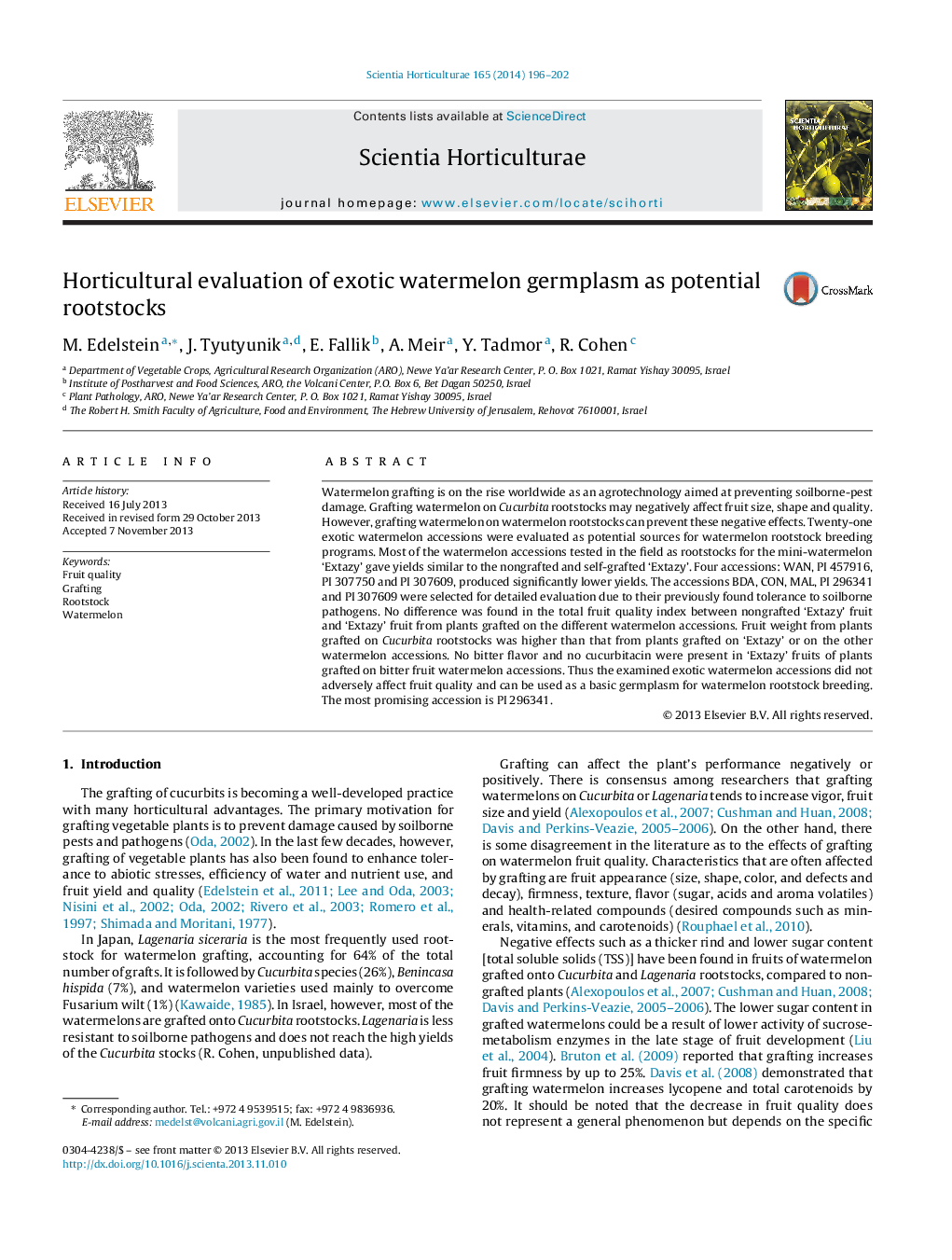| Article ID | Journal | Published Year | Pages | File Type |
|---|---|---|---|---|
| 6407426 | Scientia Horticulturae | 2014 | 7 Pages |
â¢Grafting watermelon on Cucurbita rootstocks may affect negatively fruit quality.â¢Watermelon rootstocks do not reduce fruit yield and quality.â¢Successful watermelon rootstock should provide wide range of disease resistance.
Watermelon grafting is on the rise worldwide as an agrotechnology aimed at preventing soilborne-pest damage. Grafting watermelon on Cucurbita rootstocks may negatively affect fruit size, shape and quality. However, grafting watermelon on watermelon rootstocks can prevent these negative effects. Twenty-one exotic watermelon accessions were evaluated as potential sources for watermelon rootstock breeding programs. Most of the watermelon accessions tested in the field as rootstocks for the mini-watermelon 'Extazy' gave yields similar to the nongrafted and self-grafted 'Extazy'. Four accessions: WAN, PI 457916, PI 307750 and PI 307609, produced significantly lower yields. The accessions BDA, CON, MAL, PI 296341 and PI 307609 were selected for detailed evaluation due to their previously found tolerance to soilborne pathogens. No difference was found in the total fruit quality index between nongrafted 'Extazy' fruit and 'Extazy' fruit from plants grafted on the different watermelon accessions. Fruit weight from plants grafted on Cucurbita rootstocks was higher than that from plants grafted on 'Extazy' or on the other watermelon accessions. No bitter flavor and no cucurbitacin were present in 'Extazy' fruits of plants grafted on bitter fruit watermelon accessions. Thus the examined exotic watermelon accessions did not adversely affect fruit quality and can be used as a basic germplasm for watermelon rootstock breeding. The most promising accession is PI 296341.
